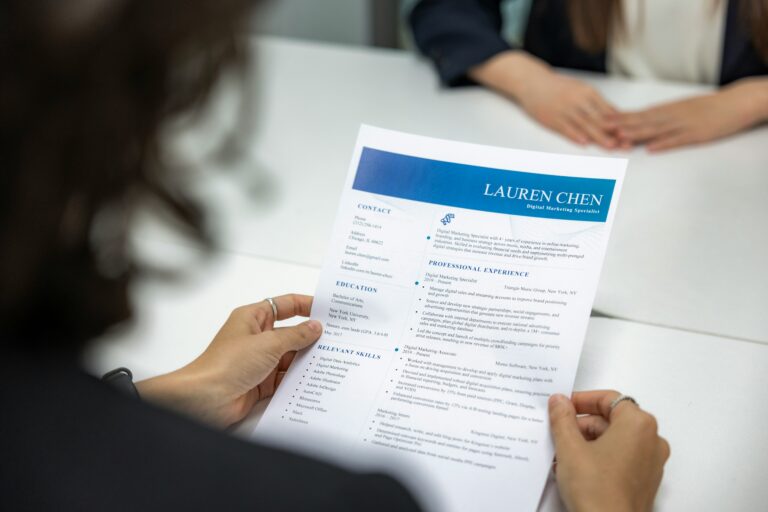Preparing for a technical interview can be a daunting process, but with the right strategy and resources, you can significantly increase your chances of success. This guide will take you through the steps needed to prepare for a technical interview, from understanding the interview format to mastering the necessary technical skills and soft skills.
1. Understand the Interview Format
Technical interviews often vary in format depending on the company and the role you are applying for. Generally, they can be broken down into the following stages:
a. Phone Screen
The phone screen is typically the first step. It can include basic questions about your background, your interest in the position, and some preliminary technical questions.
b. Coding Challenge
This stage usually involves solving coding problems in a specified time frame. It might be conducted through platforms like HackerRank, LeetCode, or Codility.
c. On-site or Virtual Interviews
These interviews can span several rounds and may include whiteboard coding, system design, and behavioral questions. They test your problem-solving skills, understanding of algorithms and data structures, and sometimes your knowledge of specific technologies.
d. Behavioral Interview
Behavioral interviews assess your soft skills, cultural fit, and how you handle various work situations. Questions often revolve around your past experiences, teamwork, leadership, and conflict resolution.
2. Build a Strong Foundation in Algorithms and Data Structures
Most technical interviews focus heavily on algorithms and data structures. Here’s how to build a solid foundation:
a. Study Key Concepts
Focus on understanding and implementing core algorithms and data structures, including:
- Arrays and Strings: Basic manipulations, sorting, searching.
- Linked Lists: Singly and doubly linked lists, common operations.
- Stacks and Queues: Implementation, applications.
- Trees and Graphs: Traversals (in-order, pre-order, post-order), binary search trees, graph traversal algorithms (BFS, DFS).
- Hash Tables: Implementation, collision resolution techniques.
- Dynamic Programming: Memoization, tabulation.
- Sorting and Searching Algorithms: Quick sort, merge sort, binary search.
b. Practice Regularly
Regular practice is crucial. Use online platforms like:
- LeetCode: Offers a wide range of problems with varying difficulty levels.
- HackerRank: Provides problems and contests to practice coding skills.
- CodeSignal: Features coding exercises and interview prep guides.
- TopCoder: Known for competitive programming challenges.
c. Understand Problem-Solving Patterns
Learn common problem-solving patterns such as sliding window, two pointers, merge intervals, and backtracking. Understanding these patterns can help you approach new problems more effectively.
3. Master System Design
For senior positions or roles that require designing complex systems, system design interviews are critical. Here’s how to prepare:
a. Study Core Concepts
Understand the fundamentals of system design, including:
- Scalability: Designing systems that can handle increased load.
- Load Balancing: Distributing traffic across multiple servers.
- Caching: Improving performance by storing frequently accessed data.
- Database Design: SQL vs. NoSQL, normalization, denormalization.
- Consistency and Availability: Understanding the CAP theorem.
- Microservices and Monolithic Architecture: Pros and cons of each approach.
b. Read and Analyze
Books like “Designing Data-Intensive Applications” by Martin Kleppmann and “System Design Interview” by Alex Xu are excellent resources. Analyze real-world system architectures of popular services like YouTube, Twitter, and Netflix.
c. Practice Design Problems
Practice common system design problems such as designing a URL shortener, a social media feed, or an e-commerce system. Draw diagrams and explain your design decisions clearly.
4. Develop a Deep Understanding of Core Technologies
Depending on the job requirements, you may need in-depth knowledge of certain technologies. Here’s how to gain that expertise:
a. Identify Key Technologies
Focus on the technologies mentioned in the job description. These might include:
- Programming Languages: Be proficient in languages like Java, Python, C++, or JavaScript.
- Frameworks and Libraries: Understand frameworks like Spring, Django, React, or Angular.
- Databases: Be familiar with relational databases (e.g., MySQL, PostgreSQL) and NoSQL databases (e.g., MongoDB, Cassandra).
- Tools and Platforms: Know tools like Docker, Kubernetes, AWS, or Azure.
b. Build Projects
Apply your knowledge by building projects. This not only strengthens your understanding but also provides tangible evidence of your skills. Contribute to open-source projects or create your own.
5. Hone Your Soft Skills
Technical expertise alone is not enough. Soft skills are crucial for effective communication and teamwork.
a. Communication
Practice explaining complex technical concepts in simple terms. During the interview, explain your thought process clearly and systematically.
b. Teamwork
Be prepared to discuss your experiences working in teams. Highlight your role, the challenges faced, and how you contributed to the team’s success.
c. Problem-Solving and Adaptability
Employers look for candidates who can adapt to new challenges and solve problems efficiently. Prepare stories that demonstrate your problem-solving skills and adaptability.
6. Prepare for Behavioral Questions
Behavioral questions often use the STAR method (Situation, Task, Action, Result). Here’s how to prepare:
a. Identify Common Questions
Research common behavioral interview questions such as:
- Describe a challenging project you worked on.
- How do you handle conflicts in a team?
- Give an example of a time you showed leadership.
b. Craft Your Stories
Prepare stories from your past experiences that highlight your skills and achievements. Structure your answers using the STAR method.
c. Practice
Conduct mock interviews with friends or use platforms like Pramp to practice behavioral questions.
7. Mock Interviews
Mock interviews are one of the most effective ways to prepare. Here’s how to make the most of them:
a. Simulate Real Conditions
Simulate the actual interview conditions as closely as possible. Dress appropriately, use a timer, and practice in a quiet environment.
b. Seek Feedback
Have experienced professionals or mentors conduct the mock interviews and provide constructive feedback. Focus on areas for improvement and work on them.
c. Reflect and Improve
After each mock interview, reflect on what went well and what didn’t. Continuously refine your approach based on feedback and self-assessment.
8. Final Preparations
As the interview date approaches, make final preparations to ensure you’re ready:
a. Review and Revise
Review key concepts, algorithms, and practice problems. Focus on areas where you feel less confident.
b. Rest and Relax
Get plenty of rest before the interview day. Avoid cramming at the last minute, as it can increase stress and reduce your performance.
c. Gather Necessary Materials
Ensure you have all necessary materials ready, such as a charged laptop, a stable internet connection (for virtual interviews), and any required identification or documents.
Conclusion
Preparing for a technical interview requires a combination of technical expertise, problem-solving skills, and effective communication. By following this comprehensive guide, you can systematically prepare for each aspect of the interview process. Remember, consistent practice and continuous improvement are key to success. Good luck!





